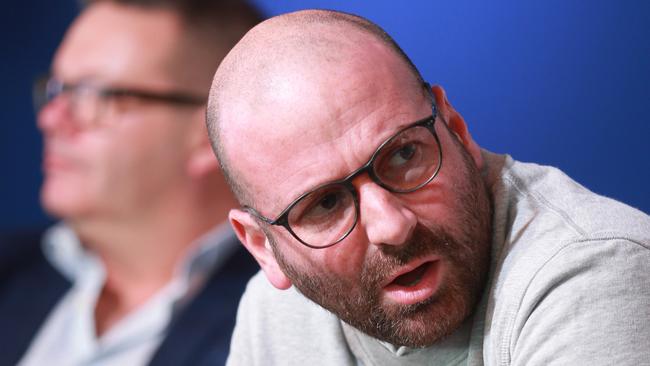Celebrity chefs don’t deserve to go to jail
Underpaying workers shouldn’t be accepted in any workplace, but the answer to fixing the hospitality industry’s wage crisis isn’t to threaten jail time, as our PM has suggested, writes Michael Wilkinson.
Prime Minister Scott Morrison has put employers on notice, saying those who exploit workers may soon face criminal penalties.
“Right now, the Attorney-General is drafting laws to deal with criminalising worker exploitation,” Morrison stated during question time on Wednesday.
The call comes after celebrity chef George Calombaris was hit with a $7.8 million underpayment bill and Neil Perry faces legal action for the alleged underpayment of a chef.
But here’s the thing: not all employers are deliberate ‘thieves.’ In fact, the vast majority aren’t.
The problem with criminalising worker exploitation or underpayments is that it sends the message that employers are knowingly and wilfully out to exploit workers. And before we mislabel an entire section of Australia’s economy as bosses intent on ripping off their staff, can we perhaps examine the deeper reasons why employers might be struggling to pay their staff correctly?
MORE FROM RENDEZVIEW: Something’s gotta give in the hospitality industry
I’m not condoning the deliberate underpayment or exploitation of employees. But from my experience, the vast majority of businesses work hard to ensure their employees are properly paid. The Employsure workplace advice line receives over 260,000 thousand calls a year from businesses seeking clarity on these matters, which shows that businesses are actively seeking help to avoid anything untoward or potentially criminal takes place.

Throughout history, wage underpayment has been considered a civil issue that falls within the employment relations framework. There are already substantial penalties for any business that deliberately underpays its workers. And although we already have the means to address underpayment, the government is now calling for a change. Why? It might be good politics, but it’s not good for businesses.
If we bring wage payments into the criminal system what happens next? Will the misuse of sick leave become known as time theft? Will failure to pay overtime see people in jail cells?
Systematic underpayment is a serious matter, but let’s face the truth, in most cases it is honest errors and a lack of understanding of entitlements that put businesses at risk.
MORE FROM RENDEZVIEW: Has Channel 10 made a massive MasterChef mistake?
It’s no secret that we have one of the most complex workplace relations systems in the world. As a result, employers are especially prone to making wage errors. Between casual, part-time and full-time workers, along with rising minimum wages, various penalty rates and award entitlements, it’s a merry-go-round and can be hard to navigate.
The overwhelming view that we have heard from small businesses is that legislation is far too complicated.

Most employers want to do the right thing. Most problems arise because of misunderstandings about the application of the law, rather than a blatant disregard for it.
The key objective of any government in this space should be to make it as easy as possible for employers and employees to know their rights. The compliance system needs to be sufficiently robust to deter the small proportion of employers who would be tempted to do the wrong thing.
Nobody wins if employees lose their jobs when a business closes because of the size of the fine or because the employer has been imprisoned.
MORE FROM RENDEZVIEW: MasterChef judges were worth the money
All employers, particularly small businesses need help — not threats of criminalisation. It doesn’t make sense. Why create fear in the business community?
Of course there are rogue operators, every industry in every economy has them. But before we tar all of business owners with that brush, let’s ask a bigger question: is it possible that Australia’s increasingly complex workplace relations system is contributing to the problem?
Employers don’t belong in the criminal justice system. Workplace matters are best dealt with elsewhere.
Michael Wilkinson is a Senior Employment Relations Adviser at Employsure.


